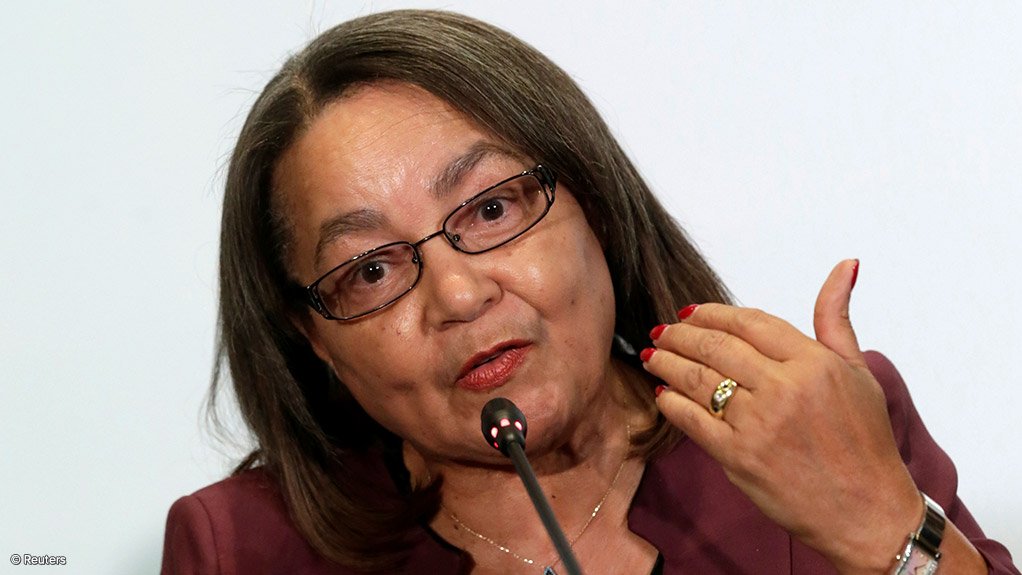/ MEDIA STATEMENT / The content on this page is not written by Polity.org.za, but is supplied by third parties. This content does not constitute news reporting by Polity.org.za.
The Minister of Tourism, Patricia de Lille, welcomes Cabinet’s concurrence of the Tourism Sector Masterplan which was gazetted on Friday 13 October 2023.
“Implementing the Masterplan will create opportunities for inclusive participation of all sectors of society, including women, youth and people with disabilities. This Plan also gives impetus to the recovery and sustained growth of the sector,” said Minister De Lille.
Due to its multiplier effect, labour intensity, and value chain that creates significant employment opportunities, tourism is recognised as a priority sector of the South African economy. The sector’s interlinkages with other economic sectors provides business opportunities for Small, Micro to Medium Enterprises, which is why it was identified as one of seven key sectors in South Africa's Re-Imagining Industrial Strategy, approved by Cabinet in 2019. This is the basis upon which the Tourism Sector Recovery Plan (TSRP) was converted into a comprehensive Tourism Sector Masterplan.
The conversion of the Tourism Sector Recovery Plan into the Tourism Sector Masterplan was one of the key priorities given to Minister de Lille by President Cyril Ramaphosa as part of the minister’s performance agreement. This priority has now been achieved.
“The Masterplan aims to galvanise industry, labour and government to collectively act on a shared vision, identify priorities, and deliver economic activity and jobs for all South Africans,” Minister de Lille said.
“As the Tourism Sector Recovery Plan has a lifespan of three years, from 2021/22 to 2023/24, the Department of Tourism embarked on a process to convert the TSRP into the Tourism Sector Masterplan. This entailed the integration of all TSRP interventions into the Tourism Sector Masterplan, with the extension of the timeframe for implementation up to the 2025/26 financial year,” said the Minister.
Additionally, the vision, mission, guiding principles, and values of the National Tourism Sector Strategy (NTSS) 2016 – 2026 were adopted. Institutional and governance responsibilities for developing and implementing the Masterplan were added in accordance with the Masterplan guidelines to prepare, develop and implement of a Masterplan.
The TSRP was a three-year highly focussed intervention and product of collaboration with key stakeholders from the government, the private sector and other social partners aimed at mitigating the impacts of the COVID-19 pandemic on the tourism economy and charting a roadmap for recovery. It proposed various measures to Protect and Rejuvenate Supply, Reignite Demand and Strengthen Enabling Capability for tourism recovery.
Overall, the Plan proposed seven (7) Strategic Interventions underpinned by specific actions aimed at helping the sector recover to pre-pandemic levels and positioning the sector for long-term sustainable growth. Noting the tourism sector's impact on the broader economy, the Plan is aligned to the Economic Reconstruction and Recovery Plan (ERRP), in particular to the ERRP's priorities in the areas of employment creation, infrastructure investment, green economy or sustainability interventions; inclusion of women and youth; as well as skills development.
“The pillars and strategic interventions of the Tourism Sector Recovery Plan have been adopted for the Masterplan and therefore the effective implementation of the Plan will be anchored on seven Strategic Interventions supported by catalytic programmes with specific actions, timeframes and an indication of those responsible for implementing each action,” stated the Minister.
The Strategic Interventions are indicated below:
- Implement norms and standards for safe operations across the value chain to enable safe travel and rebuild traveller confidence;
- Stimulate domestic demand through targeted initiatives and campaigns;
- Strengthen the supply-side through resource mobilisation and investment facilitation;
- Support for the protection of core tourism infrastructure and assets;
- Execute a global marketing programme to reignite international demand;
- Tourism regional integration; and
- Create an enabling policy environment to provide enhanced support for sector growth and development.
Furthermore, successful implementation of the Plan will, in part, depend on a set of enablers for growth whose implementation is beyond the Department of Tourism and the tourism industry in general. Enablers for growth are identified as follows:
Formation of targeted, strategic partnerships between government and industry;
Partnership with relevant departments to ensure improved travel facilitation through the implementation of e-visas, tourist safety, airlift capacity, quicker turnaround times in the processing of tour operator licenses, and
Stimulation of domestic demand through Government consumption expenditure.
The Department of Tourism will continue to collaborate with the responsible departments and stakeholders to ensure the implementation of activities linked to the above enablers.
“The successful implementation and resourcing of the Masterplan is dependent on the commitment of all stakeholders to adopt an integrated approach in implementing the identified strategic interventions and actions. This requires sound and effective governance structures and processes that manage and support tourism which the Masterplan has outlined,” concluded the Minister.
Issued by Department of Tourism
EMAIL THIS ARTICLE SAVE THIS ARTICLE ARTICLE ENQUIRY
To subscribe email subscriptions@creamermedia.co.za or click here
To advertise email advertising@creamermedia.co.za or click here











